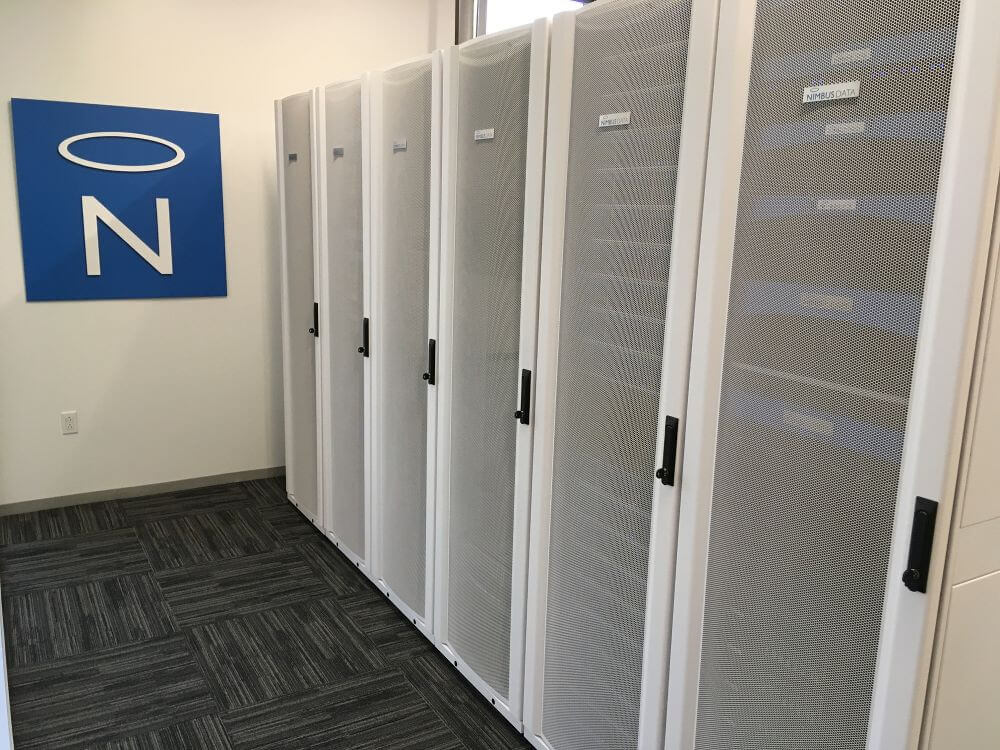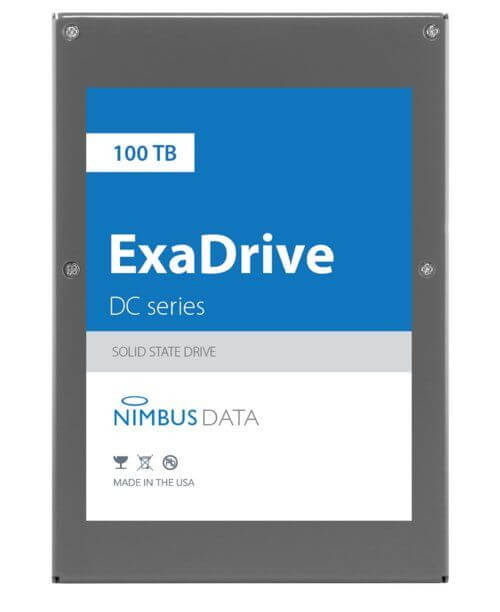
Having only held the title for a short time, Samsung can no longer claim the world’s largest-capacity SSD. Almost exactly a month since the Korean firm announced the record-breaking 30.72TB PM1643 drive, Nimbus Data has just revealed the ExaDrive DC100, which squeezes 100TB of 3D NAND flash into a 3.5-inch SATA form factor.
Nimbus says the DC100 provides enough capacity to store 20 million songs, 20,000 HD movies, or 2,000 iPhones worth of data. Not only is this drive’s capacity massive, but it’s also incredibly energy efficient. The 0.1 Watts per terabyte it consumes is around 85 percent lower than its rivals.
Designed for data centers, the DC100 prioritizes capacity and efficiency over speed. It features 100,000 IOPS random read/write performance and up to 500MB/sec throughput. For comparison, Samsung’s previous record holder features read and write speeds of 400,000/50,000 IOPS and 2100/700MB/sec.

Nimbus says that for data centers, a single rack of DC100 SSDs can achieve over 100 petabytes of raw capacity, which should appeal to services that deal with massive amounts of information.
The ExaDrive DC100, which will also come in a 50TB version, has an “unlimited endurance” guarantee for five years. It also boasts a mean time between failures (MTBF) of 2.5 million hours.
Both ExaDrive DC series drives will be available this summer. No word yet on pricing, but Nimbus Data says it will be “similar to existing enterprise SSDs on a per-terabyte basis while offering 85% lower operating costs.”
https://www.techspot.com/news/73789-nimbus-data-takes-largest-capacity-ssd-title-100tb.html